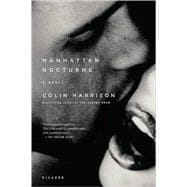
Note: Supplemental materials are not guaranteed with Rental or Used book purchases.
Purchase Benefits
What is included with this book?
Colin Harrison is the author of five novels, including The Havana Room and Afterburn. He lives in Brooklyn, New York, with his wife, writer Kathryn Harrison, and their three children.
A New York Times Notable Book
"You're trapped by page two. . . . This is the work of a powerful writer . . . with a powerful story."--The Boston Globe
"A smart, entertaining novel."--The Washington Post
"[Harrison] spares no detail of sex and violence, imbuing every phrase with a visceral punch and a sardonic tone. . . . Truly thrilling."--Chicago Tribune
"A great, roaring story of power, lust, greed, and a very human folly that characterizes our preposterous millennium--told with compassion, intelligence, and striking human insight."--Mary Gaitskill, author of Veronica
"A white-knuckle ride . . . With the narrative drive of a hurtling subway express, Harrison plunges readers into a scary subterranean world in which the only comfort comes from the neon flashes of his prose."--People
"Manhattan Nocturne soars."--The New York Times Book Review
The New copy of this book will include any supplemental materials advertised. Please check the title of the book to determine if it should include any access cards, study guides, lab manuals, CDs, etc.
The Used, Rental and eBook copies of this book are not guaranteed to include any supplemental materials. Typically, only the book itself is included. This is true even if the title states it includes any access cards, study guides, lab manuals, CDs, etc.